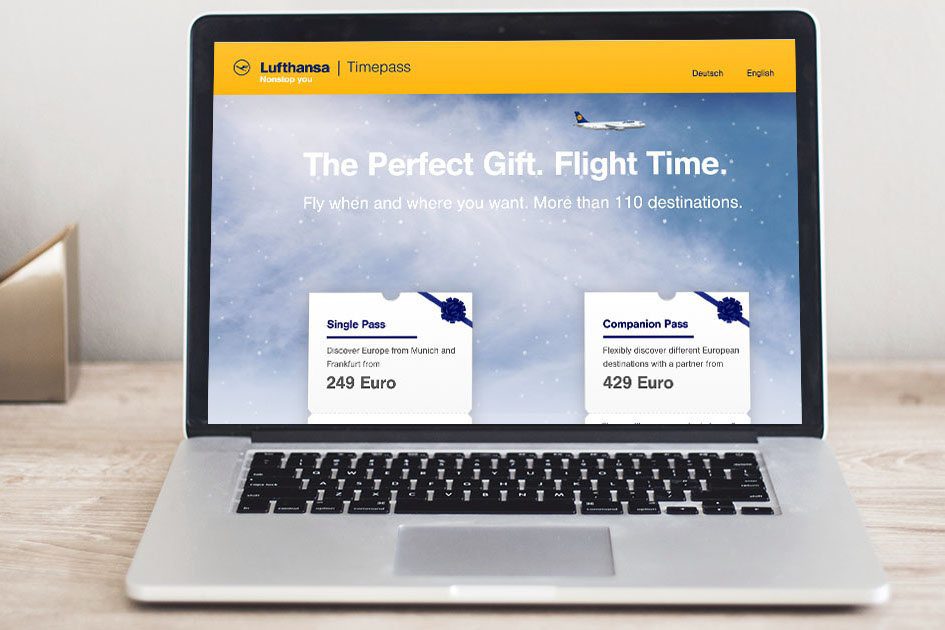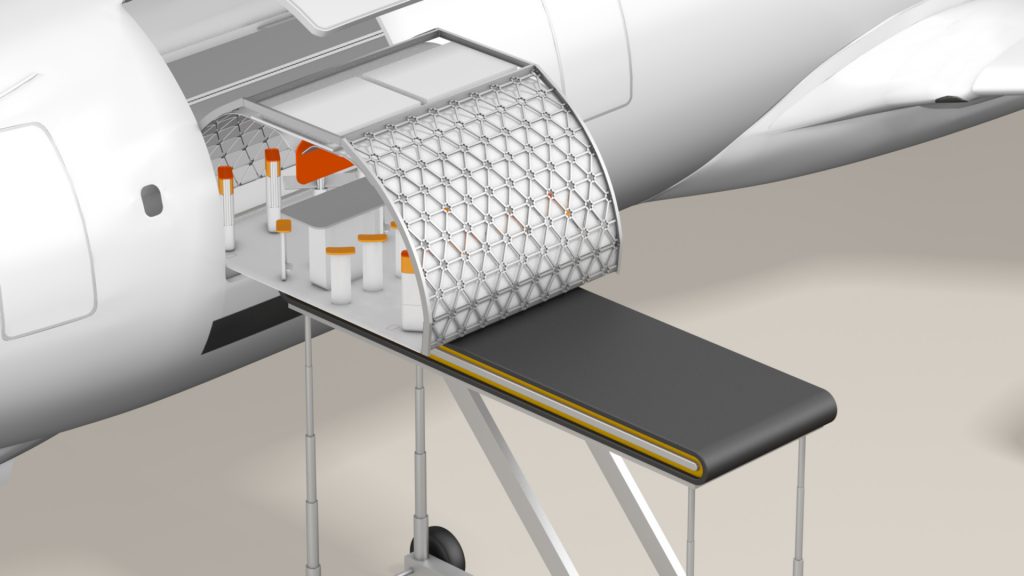Skift Take
The bureaucracy at a major legacy airline often rivals that of a government. So when Lufthansa Group decided it needed an innovation hub, it purposely built it in Berlin, far from the main headquarters. That was probably a good idea.
The Lufthansa Group, like many legacy airlines, operates one of the world’s most impressive bureaucracies. It has established policies and procedures, and just about everyone is taught not to deviate from them.
That’s the way it should be for safety. But for commercial matters, it’s not the best approach. Modern airlines prefer executives take chances and “fail fast” with innovative strategies for everything from how they sell tickets to how they check in passengers to how they board customers and bags.
Airlines know they must evolve, though not every one is doing it the same way. Some ask every employee to think differently, asking workers with decades of experience to alter how they operate. Others, like Lufthansa Group, have set up outside labs to drive change, employing tech-savvy workers without airline experience, and asking them to make bold suggestions. It works because they’re outsiders.
“They are not used to how we do things at a huge company like ours,” said Christian Langer, Lufthansa chief digital officer. “They don’t know the processes and the standards.”
I spoke with Langer recently to learn more about Lufthansa Group’s Innovation Hub in Berlin. While it hasn’t had any massive hits yet, a few of its ideas have reached the market, including airlinecheckins.com, and a new way of selling tickets.
What do you think of airlines that create innovation hubs? Do they work? Or is it a waste of money?
Email me at [email protected] or tweet me @briansumers with your thoughts.
— Brian Sumers, Airline Business Reporter
Stories of the Week
JetBlue’s Popular Mint Business Class Disrupted All of Its Rivals: JetBlue’s not the biggest U.S. airline. It’s not the most profitable. And it’s not the most on-time. But the airline has had a real success with its Mint product on transcontinental flights. It’s not yet clear whether the model that worked on New York to San Francisco and L.A. will also thrive on routes like Boston to San Diego, but at an investor conference last week, airline executives said they’re bullish on Mint’s chances.
Skift Forum Europe: Lufthansa Group’s Innovation Hub Is Its Hedge Against Disruptors: Not long ago, strategists at Lufthansa’s tech hub wondered what would happen if one of the group’s airlines sold customers 10 plane tickets at once. Passengers who bought a special pass would be able to use the 10 tickets on any Eurowings segment. It’s a small innovation, but Lufthansa Group is using findings from the test to help it understand passenger preferences.
Alipay Steps Up Push to Cater to Chinese Travelers in the U.S.: With Alipay making a push to be more ubiquitous in the United States, will more airlines start accepting it? My colleague Sean O’Neill, who covers travel technology, has some details.
Will United CEO Oscar Munoz Keep His Job After Dead Dog Outcry? This is a fun game, no? After each United customer service fail, pundits ask whether United CEO Oscar Munoz will lose his job. But here’s the thing. CEOs work for boards of directors and shareholders, and this group isn’t always so concerned about service failures. Munoz may step down at some point, but it’ll probably be for other reasons, like a lagging stock price or a margin gap to Delta Air Lines. Or maybe he’ll just retire out of frustration.
Lufthansa Is Very Worried About Rivals’ Plans in Germany: Etihad Airways spent several years propping up Lufthansa’s biggest domestic competitor, Air Berlin. Conventional wisdom would have suggested this was a problem for Lufthansa, but it wasn’t. Lufthansa much preferred competing against a weakened Air Berlin to what it faces today — a battle with EasyJet and Ryanair. Bloomberg has the details.
Ryanair Is Buying a Majority Stake in an Austrian Airline: This is a small-time deal — Ryanair will pay less than 50 million euros — and the stakes are low. But it begs the question: What is Ryanair going to do with Niki?
The Biggest Airlines Have a Strategy: Be Like Netflix: Thrillist has an interesting article on the economics of in-flight entertainment, which remains a surprisingly strong business even as many customers increasingly bring their own content for their own devices. In some ways, in-flight entertainment is like Netflix — airlines offer a lot of content, for example — but in other ways it’s not. Airlines and their suppliers have nowhere near the amount of data as Netflix about how their customers use the interface.
Coffee bars, Fitness Centers, and Casinos on Planes
You may remember the exciting reports in late 2016 about how Airbus planned to build the airliner of the future, complete with modular cabins that would support fitness centers, coffee bars, and even casinos.
We knew it was unlikely, if not impossible, but reporters (including me) like a good “what if” story, so we wrote about it, asking whether the proposal, called Transpose, might someday hit the market. Airbus was working on it through its A3 lab in Silicon Valley.
I’m sad to report Transpose is dead, with Airbus making the announcement earlier this month in a post on Medium. “The technology, research, and prototypes will be integrated into Airbus’ core business, fulfilling the project’s mission to rethink the industry’s approach to aircraft cabin design,” the company said.
You may remember the big problem with Transpose, beyond the fact that no airline wanted an onboard coffee house. To make a modular cabin, Airbus needed to use a freighter-style platform that could support the added weight. That’s certainly feasible, but freighters are heavier airplanes than the typical passenger jets, and airlines don’t need or want heavier airplanes, because they burn more fuel.
Modular cabins might return at some point, though it doesn’t seem so likely since airlines aren’t clamoring for ways to put coffee bars and gyms on their airplanes. What they want is more seats. And while modular cabins could help them with some seating conundrums — carriers might quickly replace a business class cabin with extra coach seats — few airlines seem to have an appetite for what Airbus was proposing.
Up Next
In my next installment of the Airline Insiders series, I speak with Chris Birt, general manager for inflight services at Hong Kong Airlines. I asked him the tough questions, like why transpacific airlines often serve breakfast as a second meal when landing in the United States, even when it’s 4 p.m. in Los Angeles. He also shared some interesting color on the difference between Asian and U.S. travelers.
Subscribe
Skift Airline Business Reporter Brian Sumers [[email protected]] curates the Skift Airline Innovation Report. Skift emails the newsletter every Wednesday. Have a story idea? Or a juicy news tip? Want to share a memo? Send him an email or tweet him.
The Daily Newsletter
Our daily coverage of the global travel industry. Written by editors and analysts from across Skift’s brands.
Have a confidential tip for Skift? Get in touch
Tags: airline innovation report, innovation, jetblue airways, lufthansa
Photo credit: Lufthansa's innovation hub in Berlin sold special flight packages to customers as a test. Lufthansa Group

